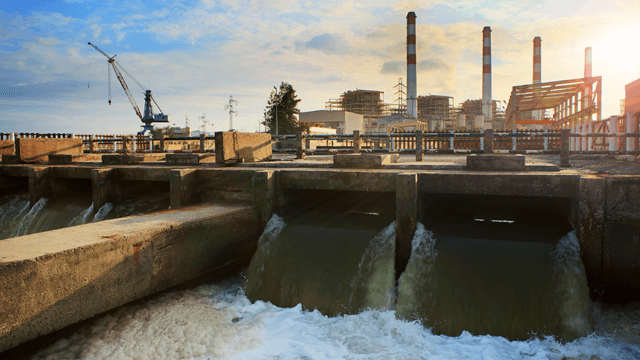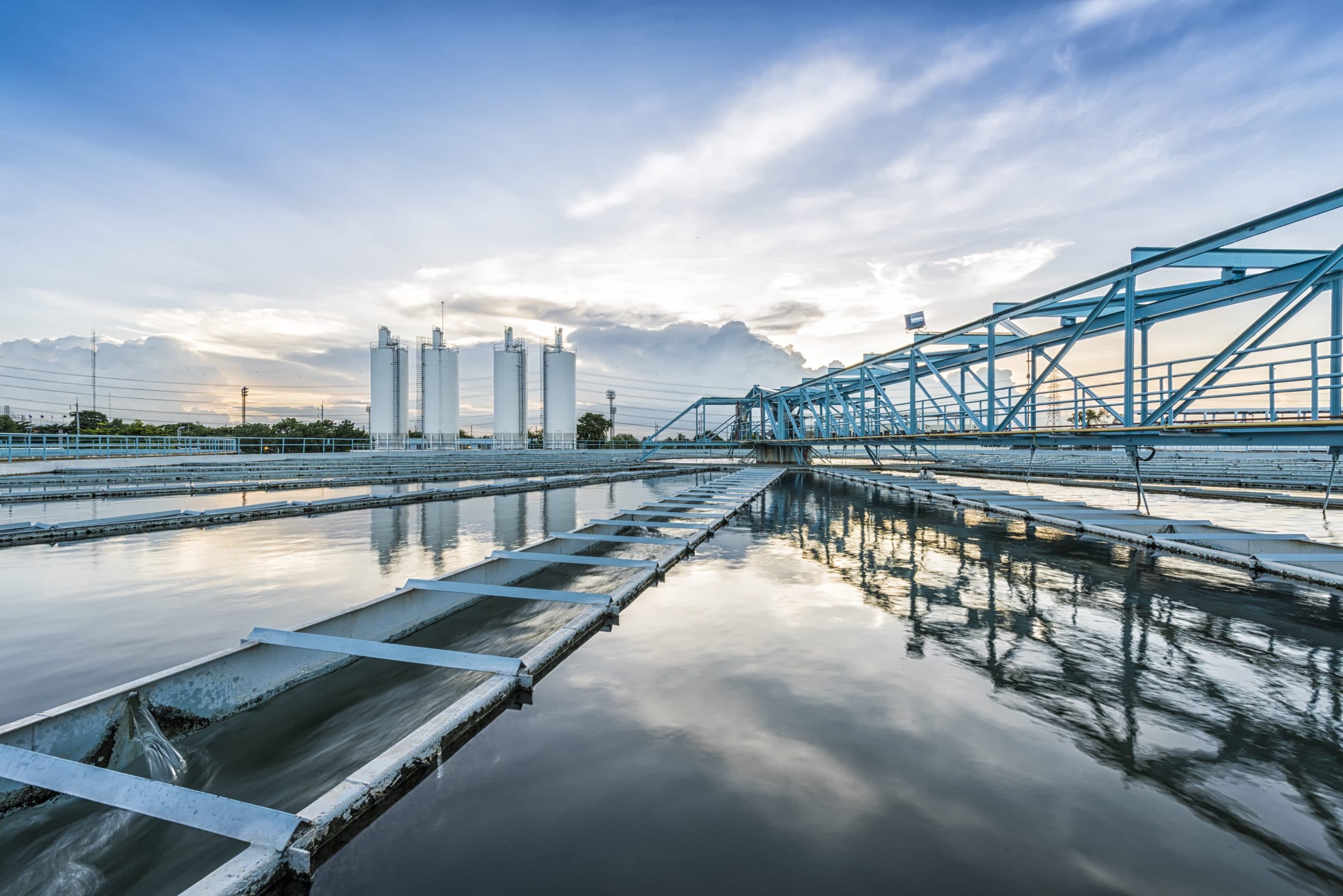Industrial Waste Water Treatment-- Comprehensive Solutions for Wastewater Disposal
Industrial Waste Water Treatment-- Comprehensive Solutions for Wastewater Disposal
Blog Article
Advancements and Advances in Hazardous Waste Water Treatment Technologies
The landscape of industrial wastewater treatment is undergoing a transformative change, driven by innovations that boost both effectiveness and sustainability. As regulatory requirements progress, the assimilation of AI and machine understanding right into wastewater administration systems guarantees to make certain and simplify operations conformity.
Overview of Waste Water Therapy Technologies
Wastewater treatment innovations incorporate a variety of methods made to remove contaminants from industrial effluents before their launch right into the atmosphere. These modern technologies are vital for maintaining environmental balance and guaranteeing conformity with ecological regulations. The key categories of wastewater treatment consist of physical, chemical, and biological methods, each offering unique purposes based upon the nature of the contaminants present.

Biological therapy approaches utilize bacteria to weaken organic matter, making them especially reliable for organic-rich effluents. Strategies like turned on sludge and biofilm activators harness the all-natural destruction capacities of bacteria, leading to significant reductions in biochemical oxygen demand (BOD)
Advanced Filtering Strategies
Advanced purification strategies stand for a crucial development in the world of industrial wastewater therapy, boosting the efficiency of contaminant elimination processes. Industrial Waste Water Treatment. These approaches incorporate a variety of modern technologies, consisting of microfiltration, ultrafiltration, nanofiltration, and turn around osmosis, which supply sequential obstacles for numerous particle sizes and chemical frameworks
Microfiltration and ultrafiltration make use of membrane systems to eliminate suspended solids, microorganisms, and bigger organic molecules, enhancing the high quality of effluent before more therapy. Nanofiltration links the gap between ultrafiltration and reverse osmosis, successfully eliminating organic compounds and divalent ions, hence reducing the load on downstream procedures.
Reverse osmosis provides the highest degree of filtration by enabling just water and small particles to travel through its semi-permeable membrane layers, making it ideal for reclaiming premium water from commercial effluents. Current advancements in membrane innovation, including the advancement of more fouling-resistant and resilient products, have actually substantially enhanced functional performance and lowered costs.
Including these advanced filtering methods not just boosts the overall therapy procedure however additionally adds to sustainability efforts by allowing water reuse and source recovery in industrial settings. (Industrial Waste Water Treatment)
Organic Treatment Advancements

Furthermore, the development of engineered biological systems, such as membrane layer bioreactors (MBRs), combines biological treatment with innovative membrane filtering. This combination enables higher effluent high quality and minimized impact, making it ideal for space-constrained industrial facilities. Developments in genetically crafted microbes have likewise arised, enhancing the biodegradation of specific contaminants, such as pharmaceuticals and hefty steels, that are commonly testing to eliminate.
Additionally, the execution of bioaugmentation techniques, where valuable microbes are introduced to enhance the existing organic treatment processes, has revealed promising outcomes in improving treatment efficiency. here These technologies collectively indicate a pattern in the direction of more effective and sustainable organic therapy techniques that can adapt to the evolving intricacies of industrial wastewater streams. As sectors remain to prioritize ecological conformity, these organic developments will play a vital duty in wastewater monitoring.

Resource Recovery Techniques
In industrial settings, the integration of resource recovery methods has become significantly essential for boosting sustainability and minimizing waste. These techniques concentrate on removing beneficial products and power from wastewater streams, therefore transforming potential toxins into recyclable sources.
One famous approach is vitamins and mineral healing, where nitrogen and phosphorus, typically existing over in wastewater, are caught and exchanged plant foods. This not just lowers ecological influences however likewise offers a circular economic climate solution for agricultural applications. Additionally, modern technologies such as anaerobic digestion allow for the conversion of natural waste into biogas, a sustainable energy resource that can offset fossil fuel usage in industrial operations.
Moreover, advanced filtering and membrane layer modern technologies facilitate the recovery of commercial spin-offs such as steels and salts. These recovered materials can be reintegrated into production procedures, lowering the need for virgin resources.
Future Fads in Waste Water Administration
As sectors progressively focus on sustainability, the future of wastewater monitoring is readied to go through significant makeovers. Technological innovations, such as artificial intelligence and device understanding, will certainly enable extra efficient surveillance and monitoring of wastewater systems. These technologies can anticipate maintenance demands, optimize treatment processes, and enhance decision-making, ultimately lowering functional expenses and environmental influence.
Furthermore, the assimilation of circular economic situation principles will certainly play a vital duty in wastewater monitoring. Industries are anticipated to shift towards systems that not only deal with wastewater but additionally recuperate useful sources, such as nutrients, water, and energy. This change will certainly minimize waste and promote the reuse of products, aligning with worldwide sustainability objectives.
Arising therapy techniques, such as membrane bioreactors and advanced oxidation processes, will additionally improve the efficiency of wastewater treatment, allowing for higher top quality effluents appropriate for reuse. In addition, regulative structures are likely to develop, emphasizing stricter requirements for wastewater discharge and motivating sectors to embrace cutting-edge treatment options.
Conclusion
In conclusion, the advancement of industrial wastewater therapy web link technologies shows a considerable shift in the direction of improved performance and sustainability (Industrial Waste Water Treatment). Advancements in innovative filtration methods, organic therapies, and source recovery techniques highlight the market's dedication to environmental stewardship.
The landscape of commercial wastewater therapy is undertaking a transformative shift, driven by advancements that improve both effectiveness and sustainability.Wastewater therapy modern technologies include a variety of approaches created to get rid of pollutants from industrial effluents before their launch right into the environment.Using the power of organic processes has led to substantial technologies in the therapy of commercial wastewater.In addition, the execution of bioaugmentation methods, where valuable germs are presented to enhance the existing biological therapy procedures, has revealed promising outcomes in boosting therapy performance. These advancements jointly indicate a fad in the direction of more lasting and reliable biological therapy approaches that can adapt to the developing intricacies of industrial wastewater streams.
Report this page